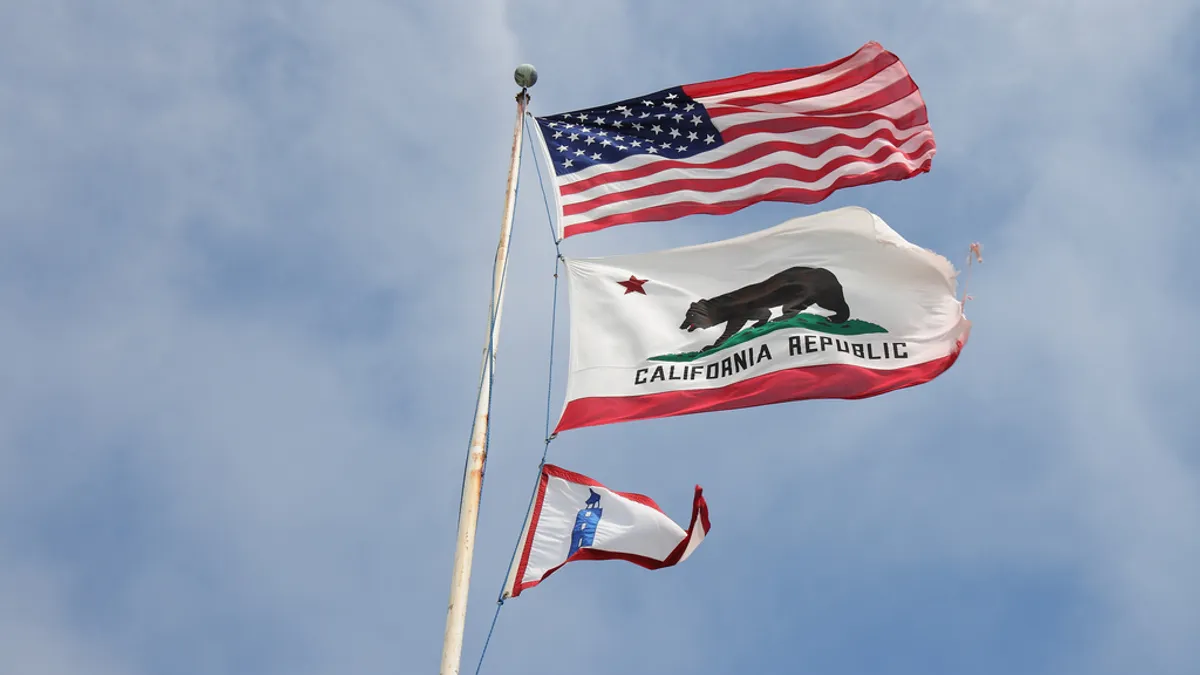Dive Brief:
- California maintained its break from national discourse after Governor Jerry Brown signed Senate Bill 822 into law, creating a California net neutrality regulation, on Sunday. Internet service providers initially lobbied the state government to kill the legislation, but it passed with 27 ayes before ending up on the governor's desk.
- In response, Attorney General Jeff Sessions and the U.S. Department of Justice issued a lawsuit against California alleging the newly enacted legislation "unlawfully imposes burdens on the Federal Government's deregulatory approach to the internet," according to a statement on Sunday. Because the federal government, not states, regulates interstate commerce, California's legislation is "extreme" and is "attempting to frustrate federal policy," Sessions said.
- Last week, Brown also approved the first state law for cybersecurity of smart and IoT devices. The law requires manufacturers of connected devices to "equip those devices with reasonable security features appropriate to the nature of the device," according the Senate floor analysis.
Dive Insight:
In recent months, California has garnered a reputation for bucking accepted U.S. norms.
California passed its own version of GDPR at the end of June. Brown signed the California Consumer Privacy Act of 2018 just before the midnight deadline and its policies will go into effect on Jan. 1, 2019.
The state Silicon Valley calls home frequently sets the tone for what eventually becomes national rules for technology best practices. California also has one of the largest economies in the world, causing many of its decisions to have a reciprocal effect on other states.
California separates itself on policies regarding consumer internet freedom and privacy, and it is not without criticism. Following the privacy bill's passage, big tech including Google, Facebook and Microsoft set their eyes on Congress to help overrule it.
Major tech companies that contribute to California's booming economy are hopeful that if a federal privacy law is enacted with less restrictive language and fewer consequences, the law will be replaced.
However, in an effort to uphold checks and balances between tech companies and regulations, California is full steam ahead, despite pushback from federal agencies.












